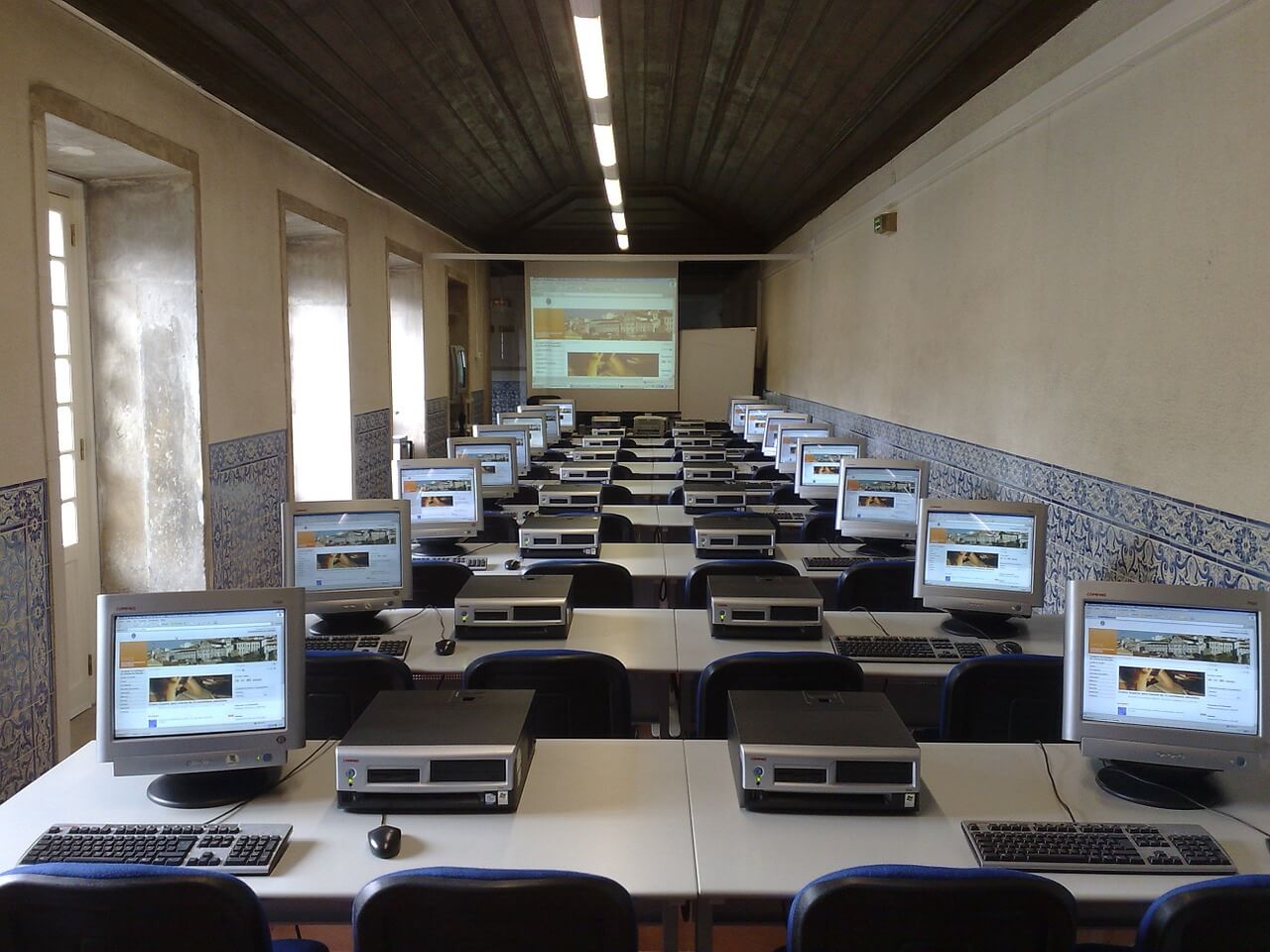Student-centric advice and objective recommendations
Higher education has never been more confusing or expensive. Our goal is to help you navigate the very big decisions related to higher ed with objective information and expert advice. Each piece of content on the site is original, based on extensive research, and reviewed by multiple editors, including a subject matter expert. This ensures that all of our content is up-to-date, useful, accurate, and thorough.
Our reviews and recommendations are based on extensive research, testing, and feedback. We may receive commission from links on our website, but that doesn’t affect our editors’ opinions. Our marketing partners don’t review, approve or endorse our editorial content. It’s accurate to the best of our knowledge when posted. You can find a complete list of our partners here.
Trade and Vocational Schools: Everything You Need to Know

 By
Zach Skillings
By
Zach Skillings 
Zach Skillings is the Scholarships360 Newsletter Editor. He specializes in college admissions and strives to answer important questions about higher education. When he’s not contributing to Scholarships360, Zach writes about travel, music, film, and culture. His work has been published in Our State Magazine, Ladygunn Magazine, The Nocturnal Times, and The Lexington Dispatch. Zach graduated from Elon University with a degree in Cinema and Television Arts.
Full BioLearn about our editorial policies

Cece Gilmore is a Content Writer at Scholarships360. Cece earned her undergraduate degree in Journalism and Mass Communications from Arizona State University. While at ASU, she was the education editor as well as a published staff reporter at Downtown Devil. Cece was also the co-host of her own radio show on Blaze Radio ASU.
Full BioLearn about our editorial policies

Maria Geiger is Director of Content at Scholarships360. She is a former online educational technology instructor and adjunct writing instructor. In addition to education reform, Maria’s interests include viewpoint diversity, blended/flipped learning, digital communication, and integrating media/web tools into the curriculum to better facilitate student engagement. Maria earned both a B.A. and an M.A. in English Literature from Monmouth University, an M. Ed. in Education from Monmouth University, and a Virtual Online Teaching Certificate (VOLT) from the University of Pennsylvania.
Full BioLearn about our editorial policies

Trade and vocational school programs are becoming increasingly popular as the demand for skilled trade professionals continues to grow. Many people are drawn to these schools as an alternative to four-year colleges because trade programs are affordable and take a relatively short amount of time to complete. But what exactly is trade school? Here’s everything you need to know.
What is trade school?
Trade schools are post-secondary institutions designed to provide students with the technical skills needed for specific occupations. Career schools, vocational schools, and technical schools are other common names for trade schools.
Trade school programs offer training for students to pursue careers in fields such as the following:
- Carpentry
- Automotive maintenance
- HVAC
- Information technology
- Nursing
- Cosmetology
There are a variety of trade school programs, which we’ll discuss below, but they all prepare students with the knowledge required to enter a skilled trades profession.
How long is trade school?
Trade school program lengths vary, but they typically range from eight months to two years. Instead of graduating with a bachelor’s degree like students at a four-year college, trade school students earn a diploma or trade certificate upon completion of their program.
What kind of jobs can you get with a trade school education?
There are a variety of rewarding professions that students can enter with a certificate or diploma from a trade school. Keep in mind that there are many skilled trade professions, but some require two or more years of formal education.
This list focuses exclusively on jobs that require only a diploma or trade certificate, which typically take two years or less to earn. Also note that the following list includes median annual salaries according to the United States Bureau of Labor Statistics. Actual salary will vary depending on several factors such as location, employer, and your own qualifications.
Also see: Top scholarships for automotive trades
Electrician
Median Annual Salary: $60,240
Job Description: Electricians install, maintain, and repair electrical power, communications, lighting, and control systems.
Program Length: Certificate programs can be completed in a year or less, but the bulk of training is completed through a paid apprenticeship, which can last up to 5 years.
Plumber
Median Annual Salary: $60,090
Job Description: Plumbers install and repair piping fixtures and systems in homes, businesses, and factories.
Program Length: Plumbing programs typically take about two years to complete.
HVAC Technician
Median Annual Salary: $51,390
Job Description: HVAC technicians install and repair heating, ventilation, cooling, and refrigeration systems.
Program length: Most HVAC programs vary between 6 months and two years in length. Some HVAC students also complete an apprenticeship, which typically lasts 3 to 5 years.
Carpenter
Median Annual Salary: $51,390
Job Description: Carpenters construct and repair a variety of structures ranging from kitchen cabinets to highways and bridges.
Program length: Typical carpentry programs take two years to complete. Most programs also require an apprenticeship, which typically lasts 3 to 4 years.
Masonry Worker
Median Annual Salary: $49,490
Job Description: Masonry workers use bricks, concrete, blocks, and stones to build walkways, walls, and other structures.
Program Length: Masonry programs take 1 to 2 years to complete, along with another 1 to 2 years of apprenticeship work following graduation.
Automotive Service Technicians and Mechanics
Median Annual Salary: $46,970
Job Description: Automotive service professionals inspect, maintain, and repair automobiles.
Program Length: Automotive technology programs typically take 6 to 12 months to complete. Graduates usually do not require much on-the-job training and can begin working immediately.
Barbers, Hair Stylists, and Cosmetologists
Median Annual Salary: $29,680
Job Description: Barbers, hair stylists, and cosmetologists provide haircutting, hairstyling, and a range of other beauty services related to personal appearance.
Program Length: Cosmetology programs typically take less than two years to complete. Many states require cosmetologists to pass an exam and obtain a license after completion of their program.
See also: Culinary Scholarships
What are the benefits of trade school?
Solid career investment
Trade school offers a secure path to career entry and professional development. Because trade school programs offer specialized job training in high-demand fields, students are typically able to find gainful employment shortly after graduation.
Affordable
The average total net cost of obtaining a bachelor’s degree at a four-year public university while living on campus is $104,108. That number jumps to a whopping $223,360 for a private school. Meanwhile, according to the US Department of Education, the average cost of trade school runs from $3,863 to $15,549.
Time-efficient
Because trade school programs only require students to take courses directly related to their field, they usually take eight months to two years to complete. This allows people who complete trade school programs to enter the workforce faster than people who earn bachelor’s degrees at four-year universities.
Related: Is college worth it? What to consider
What are the drawbacks of trade school?
Less job flexibility
Trade school programs prepare students for very specific careers, while there are a wide variety of jobs for students who earn their bachelor’s degree, regardless of their major.
Lower annual salary
Although annual salaries greatly vary depending on the industry, on average, college-based jobs tend to pay more than trade school jobs. The U.S. Bureau of Labor Statistics’ median weekly earnings data demonstrates that higher pay and lower unemployment rates correspond with educational attainment. However, the data used does not include training programs, apprenticeships, and other on-the-job training.
Related: What is the typical starting salary out of college?
Less well-rounded education
The education that students receive at trade school is tailored almost exclusively to the specific field they plan to enter after completion of the program. Meanwhile, traditional colleges and universities focus not only on preparing students for the professional world, but also providing them with critical thinking skills through general education requirements that expose students to a wide variety of subjects.
Related: Liberal arts colleges vs universities: everything you need to know
No traditional college experience
Unlike four-year universities, campus culture is not a factor at trade schools. This means there are no opportunities to join clubs or Greek life, attend parties, go to sporting events, or live in dorms with your peers.
How do I apply to trade school?
The application process for the majority of trade schools is relatively simple. For the majority of trade school programs, SAT and ACT scores are not required. Additionally, trade schools do not require an essay, recommendations, or extracurricular activities for admission.
Trade schools are not usually selective, so the majority of applicants gain admittance. In fact, most trade schools are open enrollment, meaning that anyone with a high school diploma or GED will be accepted. However, keep in mind that some schools limit enrollment numbers for high-demand programs.
There are usually no application deadlines for trade school programs, meaning that you can apply any time, but you may need to wait till the beginning of your program to enroll.
Also see: Top college alternatives to consider
How do I know if trade school is right for me?
There are many routes to pursuing an education and establishing yourself in the professional world, and trade school is just one of them. If you’re considering enrolling in a trade school program, take the time to weigh the advantages against the disadvantages. As we’ve discussed, there are pros and cons of trade school.
If you’re looking to enter a specific profession and want to quickly launch your career while also saving on tuition costs, then trade school might be the way to go. But if you would like the job flexibility of a bachelor’s degree and you’re willing to take on higher tuition costs while experiencing the campus culture at a four-year university, then trade school might not be right for you.
As you can see, there are several factors to consider when deciding on trade school. Remember to take your time, do your research, and make sure you come to an informed decision.
Related: How to pay for a certificate program
Frequently asked questions about trade and vocational school
What is the course load like for trade school?
Do my high school grades matter for trade school?
How long does trade school take?
Are financial aid and scholarships available for trade school?
What is the job placement rate for trade school graduates?



